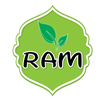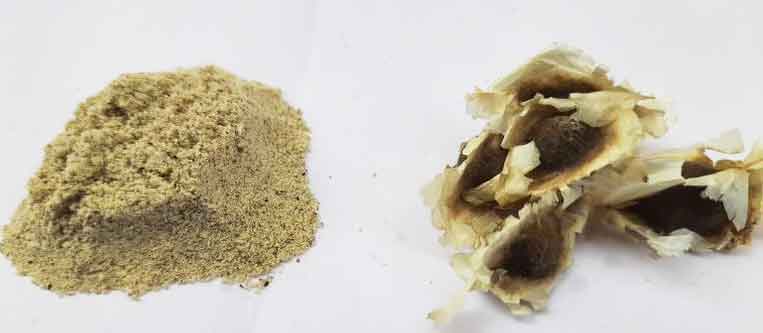
Moringa seed powder obtained by crushing dried first grade moringa seeds. For natural water cleaning purpose, powdered moringa seed used as main ingredient.
Talk to your doctor before you begin taking a dietary supplement
Moringa Powder: A Natural Way to Purify Water
Coagulation: Moringa seed powder contains proteins that can coagulate, or clump together, suspended particles in water. This makes it easier to filter out the particles, and it can also help to kill bacteria.
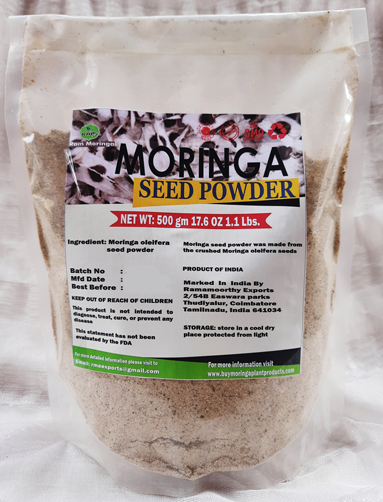
Coagulation is one of the important step in the water treatment process, especially for removing suspended solids, organic matter, and some types of microorganisms. It is often followed by processes such as sedimentation, where the flocs settle to the bottom of a tank, or filtration, where the water passes through a filter to remove the flocs.
Coagulation in water purification is a process that involves adding chemicals to water to make small particles stick together, forming larger clumps called flocs. These flocs can then be more easily removed from the water through processes like sedimentation or filtration.
The coagulation process typically involves the addition of a coagulant, such as aluminum sulfate (alum) or ferric chloride, to the water. These chemicals neutralize the electrical charges on particles in the water, allowing them to come together and form larger, heavier particles. Once formed, these particles settle out of the water more quickly, or they can be filtered more easily, improving the clarity and quality of the water.
Flocculation: It usually uses to flocculate, or clump together, bacteria in water. This makes it easier to filter out the bacteria, and it can also help to kill them.
Flocculation is the process that follows coagulation in water purification. After coagulation, where small particles are destabilized and brought together, flocculation involves gently stirring or mixing the water to encourage the formation of larger flocs from these destabilized particles.
During flocculation, the coagulated particles that have clumped together form larger, more visible aggregates called flocs. These flocs are formed as a result of collisions between the smaller coagulated particles, and the gentle mixing or agitation helps to bring them into contact.
The purpose of flocculation is to further aggregate the particles suspended in the water, making them easier to remove. The larger flocs settle out more readily during sedimentation or can be more effectively removed during filtration, resulting in clearer and cleaner water.
Flocculation is typically achieved by using mechanical means such as paddles, propellers, or gentle stirring in a tank or basin. The duration and intensity of the flocculation process can vary depending on factors such as the characteristics of the water being treated and the specific treatment objectives.
Adsorption: Moringa seed powder can also adsorb, or bind to, impurities in water. This can help to remove bacteria, viruses, heavy metals, and chemicals from water.
Adsorption in water purification is a process where contaminants in water are removed by adhering to the surface of a solid material called an adsorbent. This surface attraction allows the contaminants to be effectively trapped and removed from the water.
Activated carbon is one of the most commonly used adsorbents in water purification. It has a highly porous structure with a large surface area, which provides ample sites for contaminants to adhere to. When water passes through a bed of activated carbon, contaminants such as organic compounds, chlorine, volatile organic compounds (VOCs), and certain heavy metals are attracted to and adsorbed onto the surface of the carbon particles, effectively removing them from the water.
Adsorption is a physical process, meaning that it does not involve any chemical reactions between the adsorbent and the contaminants. Instead, it relies on the surface properties of the adsorbent and the affinity of contaminants for that surface.
Other adsorbents used in water purification include zeolites, activated alumina, and certain types of resins. The choice of adsorbent depends on factors such as the specific contaminants present in the water, the desired level of purification, and cost considerations.
Adsorption is often used in conjunction with other water purification processes such as coagulation, flocculation, sedimentation, and filtration to achieve the desired water quality standards.
How to Use Organic Moringa Powder to Purify Water
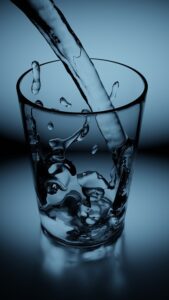
To use moringa seeds powder to purify water:
- Grind the moringa seeds into a fine powder.
- Add the powder to the water.
- Stir the water for a few minutes.
- Let the water sit for 30 minutes.
- Filter the water through a clean cloth or filter.
Drum Stick Seed Powder for Safe and Clean Water
The amount of moringa powder you need to use will depend on the turbidity of the water. For clear water, you may only need a small amount of powder. For turbid water, you may need to use more powder.
It is important to note that moringa seed powder is not a complete water purification system. It can help to remove some impurities from water, but it cannot remove all impurities. If you are concerned about the safety of your water, you should use a commercial water filter or boil the water before drinking it.
Ram Moringa Seeds Powder Water Purifier: The Easy Way to Safe Water
Use clean moringa seeds.
Grind the seeds into a fine powder.
Add the powder to the water slowly.
Stir the water thoroughly.
Here are some additional tips for using moringa seed powder to purify water:
Let the water sit for at least 30 minutes.
Filter the water through a clean cloth or filter.
Moringa as supplement to animal feed
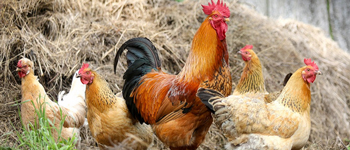
Drumstick seed powder is a good source of protein, fiber, and vitamins for animals. It is also a good source of antioxidants and minerals, such as calcium, iron, and magnesium.
Moringa powder can be used as a supplement to animal feed, or it can be used as a complete feed. It is especially beneficial for animals that are raised in areas where the soil is nutrient-poor.
Our moringa seed powder has been shown to improve the growth and health of animals. It can also help to improve the milk production of dairy animals.
Animal feed refers to the food given to domestic animals, typically livestock, poultry, and pets, to meet their nutritional needs for growth, maintenance, and reproduction. Animal feeds are formulated to provide a balanced diet containing the necessary nutrients such as proteins, carbohydrates, fats, vitamins, and minerals required for the optimal health and performance of the animals.
Usually animal feeds can be categorized based on their ingredients and purpose:
- Forage: Forage refers to feed that consists primarily of plants or plant-derived materials, such as grasses, legumes, and hay. Forages are commonly fed to grazing animals like cattle, sheep, and goats. Moringa leaves can be as main ingredient.
- Concentrates: Concentrates are feedstuffs that are high in energy and typically low in fiber. They include grains such as corn, wheat, and barley, as well as protein sources like soybean meal and fish meal. Concentrates are often used to supplement forages in the diets of livestock to meet their energy and protein requirements. Moringa leaves contain rich amount natural fibers so it is used as concentrates preparation.
- Supplements: Supplements are added to animal diets to provide specific nutrients that may be lacking or deficient in the primary feed sources. This can include minerals, vitamins, or protein supplements. Moringa contains natural protein,mineral, aminoacids etc. Moringa leaf powder used as a natural supplements.
- Complete Feeds:Complete feeds are formulated to provide all the nutrients required by the animal in a single product. They are often used for convenience in feeding, particularly for companion animals like dogs and cats.
Animal feed is typically produced by feed manufacturers or farmers themselves, who may mix various ingredients together to create a balanced diet suitable for the animals they are feeding. The formulation of animal feed is based on factors such as the species, age, weight, and intended use of the animals, as well as any specific dietary requirements or restrictions.
FAQ Moringa seed powder.
Moringa seed powder showed strong efficiency in the improvement of water quality parameters including physicochemical (such as pH, hardness, turbidity, metallic impurities, total dissolved solid) and biological (E. coli count) parameter.
We usually recommend to consult with your physician before taking any natural powder.
Moringa seed powder used as green fodder either individually or in combination with other crops.
Moringa seed powder generally used for nonhuman uses as coagulant to improve the quality of wastewater and ground water treatment.
